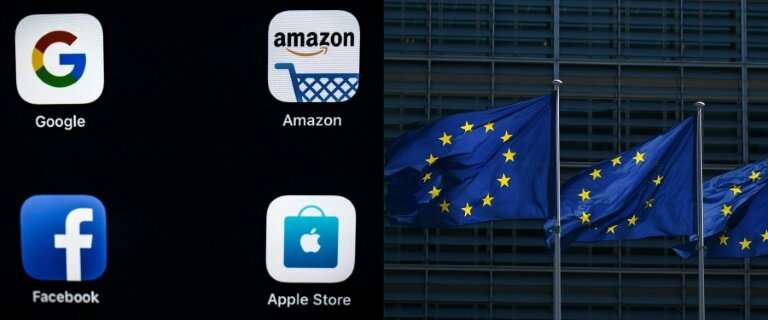(News organisations have pushed to to overhaul the EU's online copyright law, arguing that giants like Facebook and Google make billions from advertising tied to news stories, while publishers suffer
The European Union reached a provisional deal Wednesday to overhaul the bloc's online copyright law, a top official said, after a tense battle that has pitted media firms against internet giants like Google.
The European Parliament and the European Council, which represents the 28 member states, struck the agreement after three days of intense negotiations led by the European Commission, the EU's executive arm.
"Agreement reached on #copyright! Europeans will finally have modern copyright rules fit for digital age with real benefits for everyone: guaranteed rights for users, fair remuneration for creators, clarity of rules for platforms," European Commission Vice President Andrus Ansip tweeted.
He said the rules would give people "more possibilities to use and access copyrighted material with full legal certainty. Freedom of expression is guaranteed, and users will have the power to swiftly contest any unjustified removal of their content by platform."
EU Parliament president Antonio Tajani added on Twitter that "the agreement just reached on the #copyright directive protects European creativity.
"Musicians, actors, writers, journalists, audiovisual, will be entitled to fair remuneration from web giants too."
The deal must still be formally approved by the European Council and European lawmakers ahead of European parliamentary elections in May.
The commission proposed reforms in September 2016 designed to modernise copyright for the digital age, sparking a major debate between member states.
Under the deal, online platforms will be required to pay "neighbouring rights" fees to media for links to, and short excerpts of, news stories.
News organisations, including AFP, have pushed for the move, arguing that giants like Facebook and Google make billions in revenue from advertising tied to news stories, while publishers suffer.
This sparked a fight between media and creators seeking payment for online content on the one hand, and lobbyists defending the business model of the Silicon Valley giants backed by internet freedom activists on the other.
Another part of the agreement intends to ensure that platforms such as YouTube pay more to those who provide its content.
The European Parliament backed a draft law of the copyright reform in September last year, but it was held up in negotiations with EU member states, notably because of a disagreement between France and Germany in the text.
© 2019 AFP
























